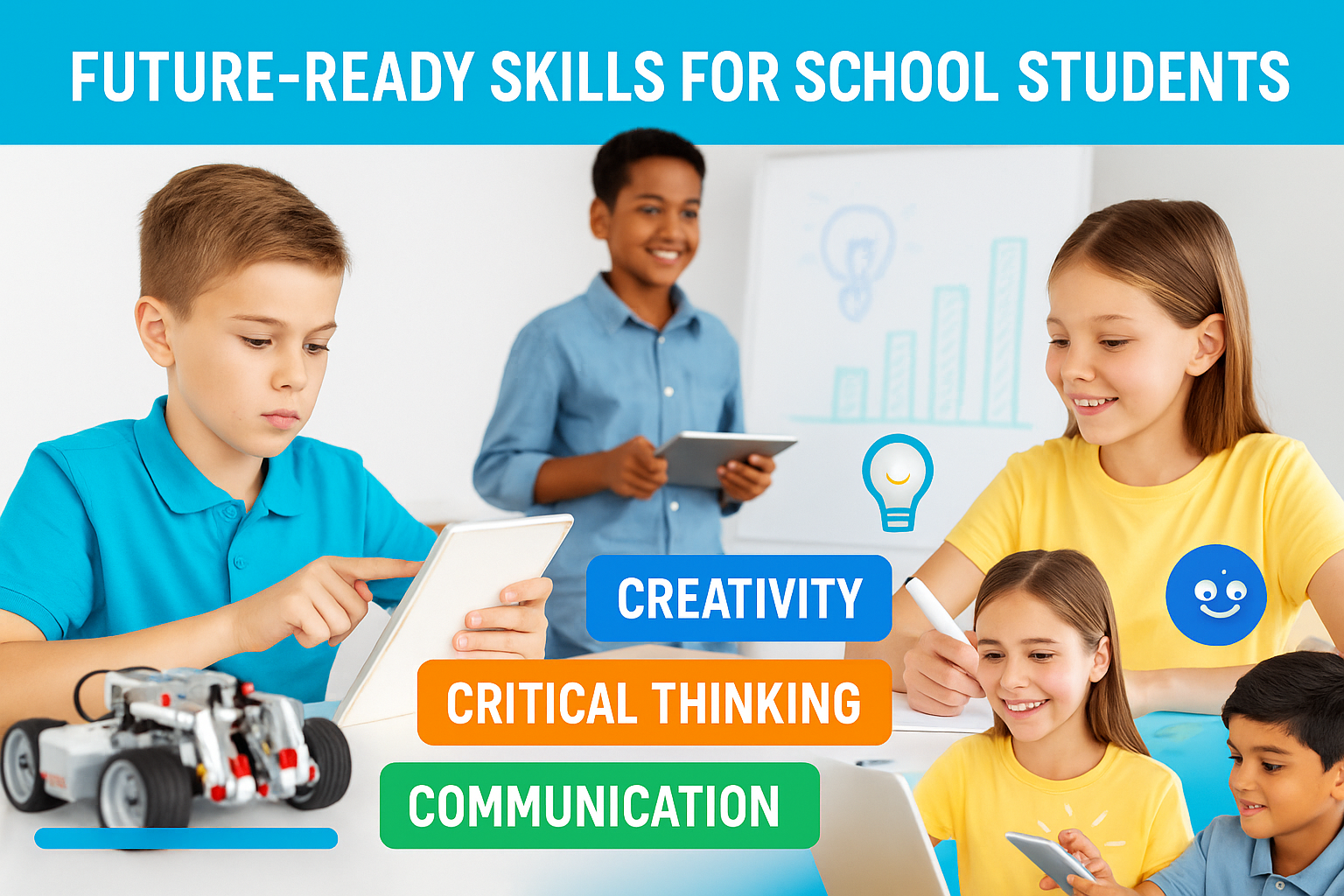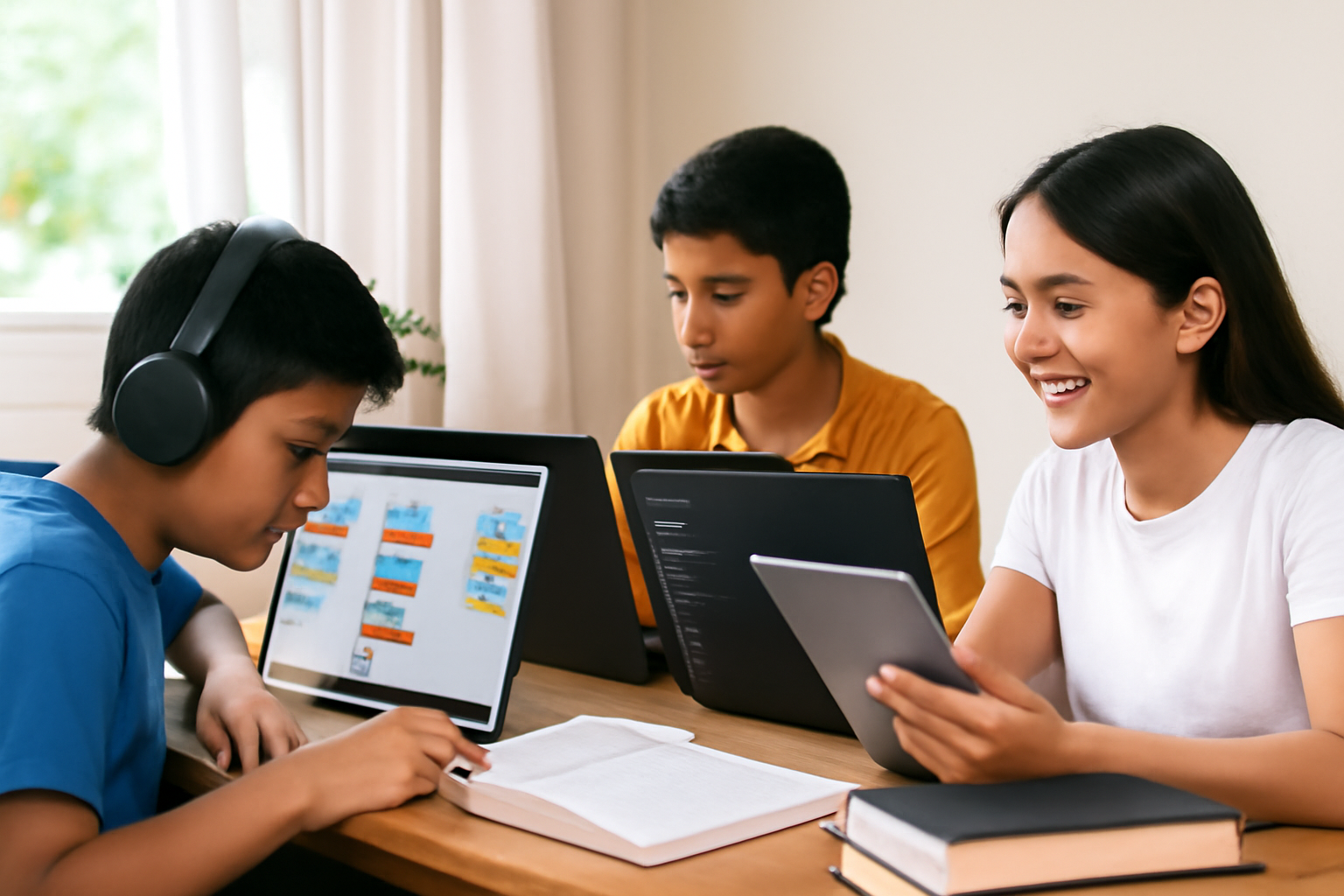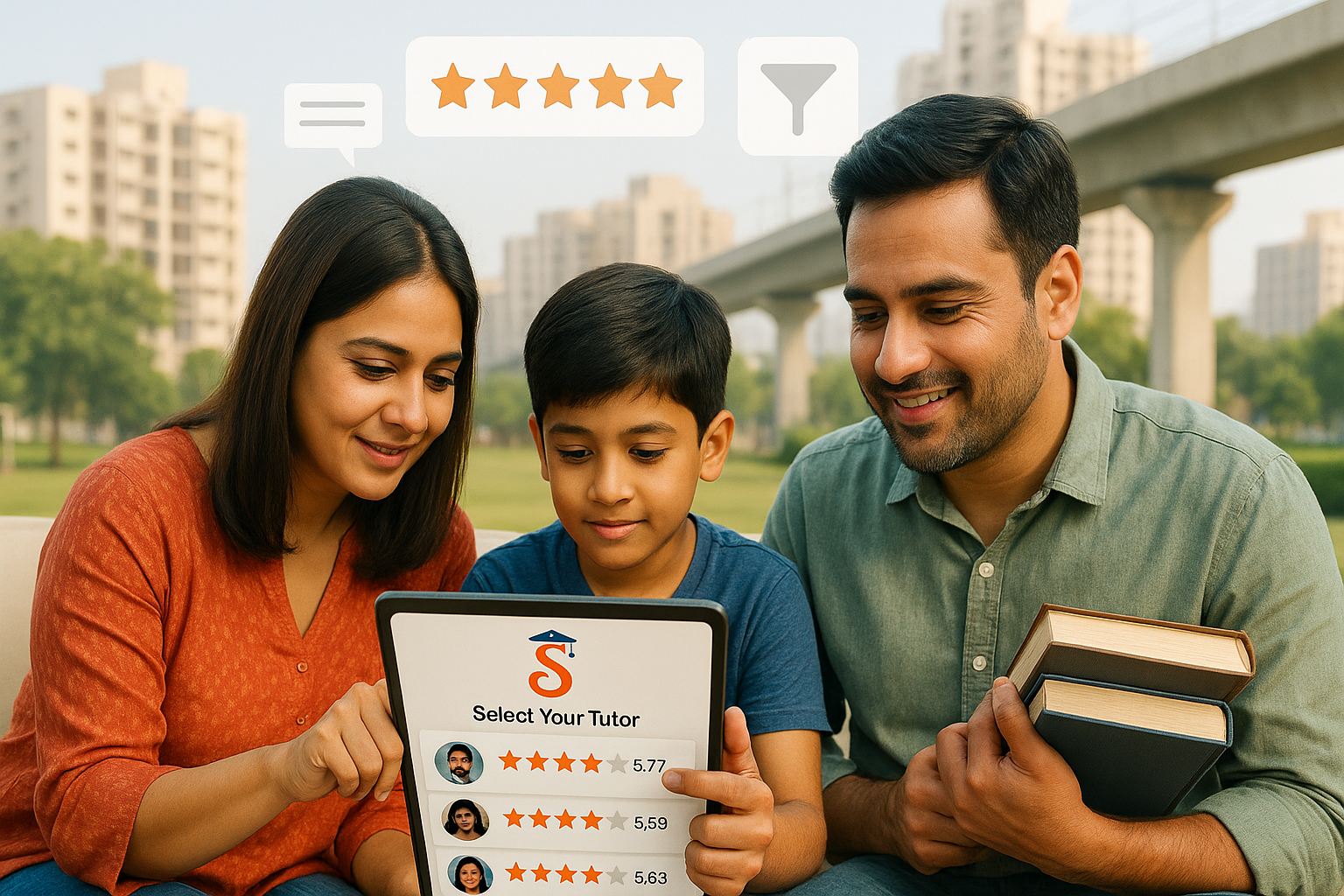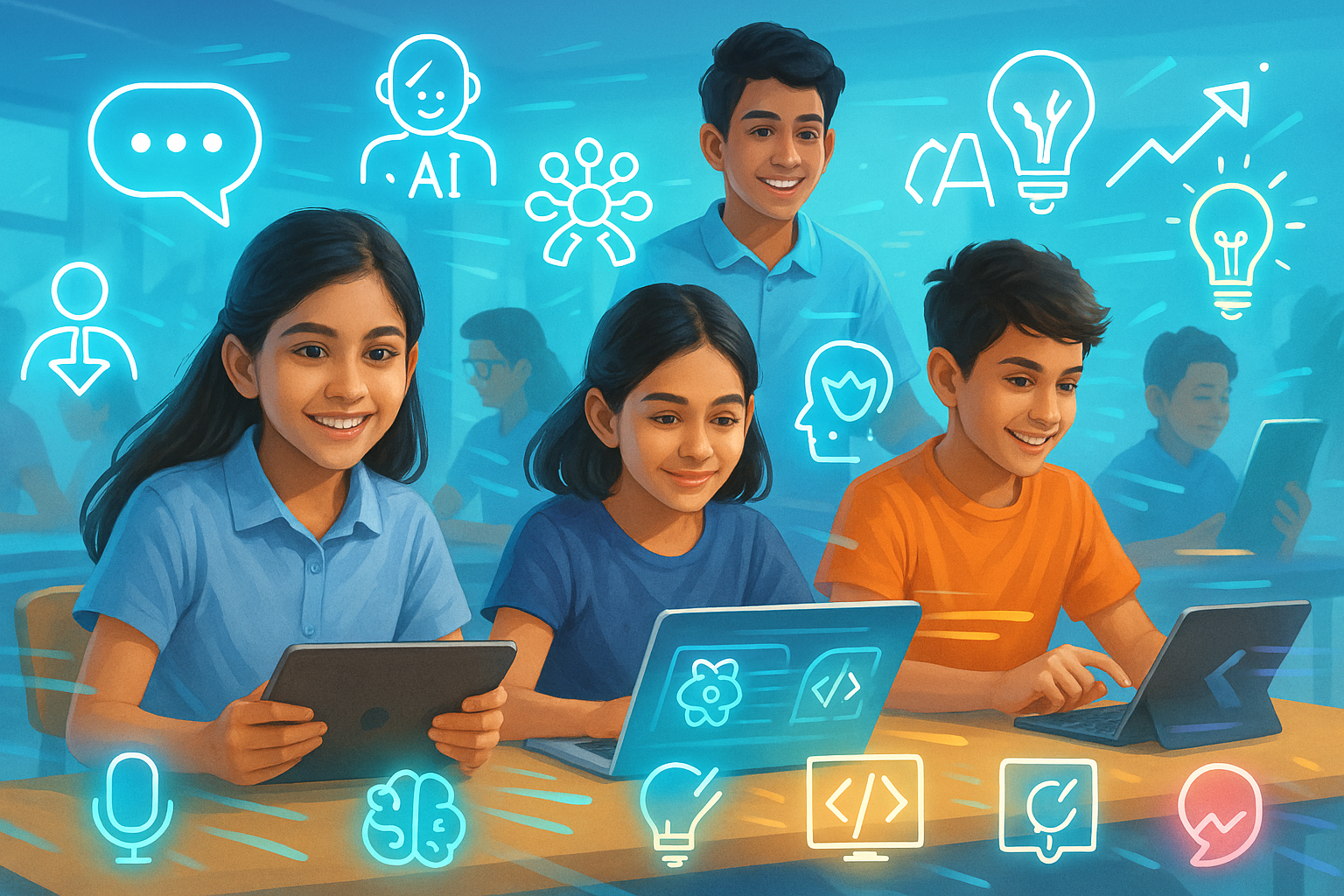In today’s world, knowledge alone isn’t enough. Children need to be equipped with skills that go beyond textbooks—skills that prepare them for a world filled with change, innovation, and digital challenges. As the job market transforms and automation grows, it's the ability to adapt, think critically, and collaborate across disciplines that will set students apart.
This blog explores the top future-ready skills every student should develop while in school—and how parents and schools can work together to build them early.
Why Future-Readiness Matters Now
The world your child will graduate into is not just competitive—it’s unpredictable. The rise of AI, climate change, remote work, and global collaboration means the traditional idea of a “safe job” is shifting. In such a future, a degree may not be enough—employers and universities are looking for creative thinkers, problem-solvers, and digital natives who can thrive in dynamic environments.
So, future-readiness isn't about cramming more information. It’s about developing mindsets and abilities that help students keep learning, unlearning, and relearning throughout life.
1. Critical Thinking and Problem-Solving
More than memorizing facts, students must learn how to think. Critical thinking involves analyzing situations, asking the right questions, evaluating evidence, and solving problems creatively. Whether it’s decoding misinformation online or designing a new science project, the ability to break down problems and explore multiple solutions is a top skill for the future.
Schools today are increasingly encouraging project-based learning and inquiry-led discussions to help students think independently—and parents can do the same at home by encouraging open-ended questions and “why do you think so?” conversations.
2. Digital Literacy and Tech Fluency
Digital skills aren’t limited to knowing how to operate a tablet or install apps. True digital literacy means being able to research effectively, understand how algorithms work, protect personal data, and use technology to create rather than just consume.
By 2025, students should know how to navigate online tools, collaborate in virtual teams, and use platforms like Google Workspace, Canva, or coding apps for school projects. Tech is no longer an “extra”—it’s a core skill across all fields.
3. Communication and Collaboration
No matter how smart a student is, if they can’t communicate clearly or work well in teams, their impact remains limited. The future will require children to present ideas persuasively—both online and offline—and to collaborate across cultures and time zones.
Activities like debating, team projects, role-playing, and even running a class podcast can build powerful communication skills. At home, encouraging children to express opinions respectfully, write blog posts, or participate in group activities can help nurture this skill further.
4. Adaptability and Resilience
The ability to adapt to change—and bounce back from setbacks—is a non-negotiable future skill. Whether it's shifting to a new learning tool, handling failure, or working in unfamiliar situations, children must develop the mindset that challenges are part of growth.
Parents and teachers can support this by encouraging risk-taking, celebrating effort over results, and modeling how to respond to failure with learning—not fear.
5. Creativity and Innovation
Creativity isn’t just for artists—it's a core business and problem-solving skill. From designing prototypes to generating fresh marketing ideas, the ability to think differently will be highly valued. Schools are incorporating design thinking, maker labs, and digital art into curricula to allow kids to express ideas through multiple formats.
Encouraging your child to doodle, build, remix, write, or code something new—even without a “use” for it—fosters their creative muscles. The more they create, the more confident they’ll feel in offering new solutions.
6. Financial and Entrepreneurial Thinking
Even school students today are starting YouTube channels, selling handmade crafts online, or learning about stock markets. This is not just a trend—it’s the beginning of entrepreneurial mindsets. Future-ready education must teach the basics of money management, investment, budgeting, and how ideas become real-world ventures.
Simple tools like allowance budgets, mock businesses, or teen banking apps can help build financial awareness. Schools that teach entrepreneurship through case studies or Shark Tank-style challenges give children a head-start in business thinking.
7. Global and Cultural Awareness
In an interconnected world, students must understand how culture, politics, and economics impact each other. Whether it’s reading about international events, collaborating with students abroad, or studying languages—global awareness teaches children to think beyond their immediate surroundings.
This fosters empathy, curiosity, and the ability to work across borders—traits that are invaluable in both education and careers.
8. Ethics and Responsible Digital Citizenship
As students spend more time online, they must also learn to behave responsibly in digital spaces. This means understanding cyberbullying, plagiarism, online etiquette, and media bias.
Schools must teach digital citizenship as part of core learning. At home, this can be reinforced through conversations about screen time, online privacy, and how their online behavior builds or harms their reputation.









